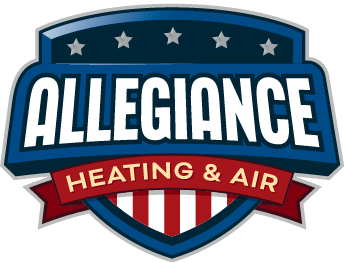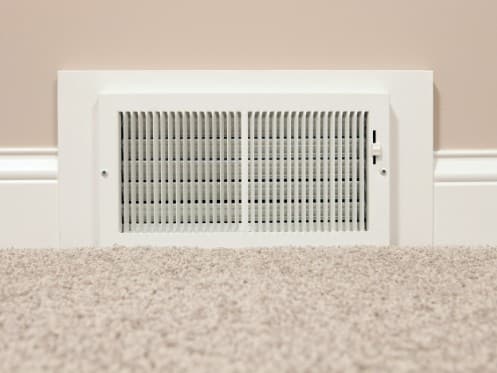Your HVAC unit is essential to providing comfort and regulating indoor temperature throughout the year. However, weather conditions can affect its performance and longevity. Extreme heat, cold, rain, or snow cause wear and tear on your unit, increasing energy bills and potential breakdowns.
Heavy Rain
Heavy rain causes clogged gutters and downspouts, impeding proper roof drainage. It causes water to back up and pool around your home’s foundation, flooding your basement. As this floodwater encounters your HVAC unit, it damages components and causes system malfunctions. If rainwater enters your unit’s air intake, it reduces efficiency by causing debris buildup on coils and ducts. This buildup reduces airflow, making your HVAC system work harder than usual.
Water damage leads to corrosion and electrical issues, compromising your unit’s functionality. Heavy rain also saturates the surrounding soil, which may shift the unit or the concrete slab it rests on. It causes misalignment, leading to inefficient operation and costly repairs.
Ensure that gutters and downspouts are clear of debris to prevent rainwater damage. Inspect the drainage systems around your HVAC unit, and seal any gaps or cracks where water can seep. Also, consider installing a protective covering over the unit’s air intake to prevent water from entering.
High Winds and Storms
The force of wind damages the fan blades or fins and causes objects to become lodged in these components, leading to poor performance and increased wear and tear. Strong winds also increase dust and debris entering the unit, which clogs and reduces airflow.
High winds may also cause power fluctuations, leading to further damage or disruption to the system. Be proactive in preparing your HVAC unit for severe weather conditions. Invest in proper maintenance beforehand and ensure your unit is well covered or safely anchored.
Snow and Ice
During winter, ice builds up on your outdoor unit, blocking the airflow. Over time, it results in excess wear and tear, leading to costly repairs. Ensure you keep your system free from snow and ice by clearing the area around the unit. Hire a professional HVAC technician to conduct regular inspections before and throughout the season.
Extreme Temperatures
External temperature impacts the performance of your heating, ventilation, and air conditioning (HVAC) unit. Extreme temperatures in either direction affect your unit’s efficiency and lifespan. High temperatures cause your HVAC system to work harder, leading to breakdowns and higher energy bills. Low temperatures cause your unit to work less efficiently and put additional strain on the internal components, causing damage over time.
To ensure your HVAC unit runs at peak efficiency and lasts as long as possible, ensure your home is well-insulated and climate-controlled year-round. Insulation keeps the temperature inside your house consistent, preventing drastic fluctuations that can cause wear and tear on the unit.
It also saves you money in energy costs by minimizing the energy needed to heat and cool your home. Updating or replacing outdated insulation in walls, attics, crawl spaces, and basements reduces outside noise and prevents allergens from entering your home.
Hail Storms
When hailstones strike your outdoor unit, they can crush fins, bend the coils, or puncture the refrigerant line. They damage the outdoor condensing units, which are expensive to repair or replace. These damages affect the functionality of your HVAC system, reducing its efficiency and lifespan.
Hailstorms can also cause broken windows and leaks that allow air to escape from the building. These air leaks strain the HVAC system as it works harder and longer to maintain a comfortable internal temperature. Install hail guards or covers on your exterior units to protect them against storms.
Dust Storms and Sandstorms
Sandstorms and dust storms cause external damage to the unit, clogging air filters and ducts with debris. This buildup restricts airflow and decreases the unit’s efficiency. Sand and dust particles can penetrate the unit’s internal components, causing damage and shortening its lifespan.
Cover or relocate the unit during a storm to avoid possible damage. Sand and dust storms also affect indoor air quality levels. Poor indoor air quality leads to respiratory issues or allergy triggers. To combat this issue, homeowners should install an air purification system for high dust particles.
Frost
When exposed to freezing temperatures, many AC components break down. Severe weather compromises the air handler, ducts, and condenser coils. If an HVAC unit is not well-insulated, it may not withstand the strain and cease functioning.
Salty Air
Although often overlooked, salty air is deleterious to an HVAC system’s operation. If the system is near a salty water body, ocean breezes or wind-driven waves carry salt particles which build salt on the unit’s coils and fins. The salt accumulation hinders the heat transfer process, reducing the system’s energy efficiency.
Preparing Your HVAC System for Extreme Weather Conditions
Invest in a Reliable Surge Protector
Protecting your HVAC system from power surges and lightning strikes should be one of your top priorities as a homeowner. Invest in a reliable surge protector to safeguard your investment. Surge protectors divert excess voltage from your HVAC system, protecting it from voltage spikes. Choose a surge protector designed to handle your HVAC system’s voltage requirements.
Install Sump Pumps
If you live in a region prone to flooding, install sump pumps around your property. A sump pump collects flowing water into a pit dug into the ground, pumping it out and away from your property. It also removes excess groundwater that floods your basement, which could damage your home’s foundation and HVAC unit. You can also install water barriers, such as rubber or plastic membranes, around your foundation and walls to guard against moisture.
Install an Air Conditioner Cover
An air conditioner cover shields the unit from harsh elements to help prevent damage from snow, ice, and other debris that may accumulate on your unit. Additionally, they provide an extra layer of insulation that can improve the efficiency of your HVAC system.
Note that not all air conditioner covers are the same. Research and choose a high-quality cover designed for your specific unit. Air conditioner covers prolong the life of your air conditioner and keep it running at its best no matter what Mother Nature has in store.
Consult the Experts to Mitigate the Effects of Weather on Your HVAC Unit
Extreme weather conditions experienced in certain areas can harm home cooling and heating systems. To ensure their HVAC unit remains in tip-top shape and continues to run efficiently in all seasons, homeowners should properly maintain and service their units. Schedule an HVAC inspection before a storm hits or winter sets in.
Regular maintenance and servicing prevent costly repairs, improve efficiency, and increase the lifespan of your HVAC system. These services identify potential problems that could lead to inefficient operation or a system breakdown. They also identify areas where energy efficiency improvements can be made.
If you reside in Louisville, Greenville, Floyds Knobs, Georgetown, Jeffersonville, or New Albany and you need service, call one of our professionals from Allegiance Heating & Air, LLC. We will check for signs of wear or damage to the heating system and recommend the best maintenance and repair options. In addition to providing HVAC services, we also offer indoor air quality services. Contact us today for more information on HVAC maintenance before harsh weather.




